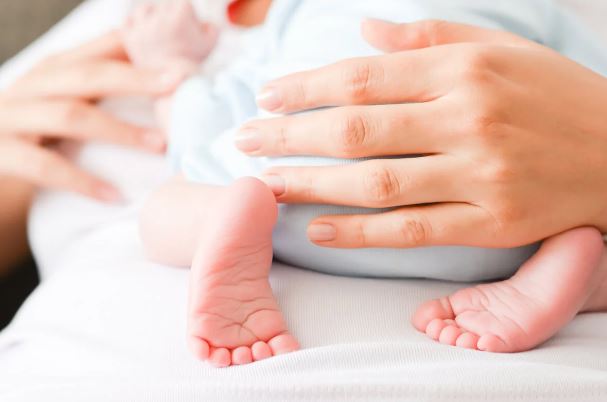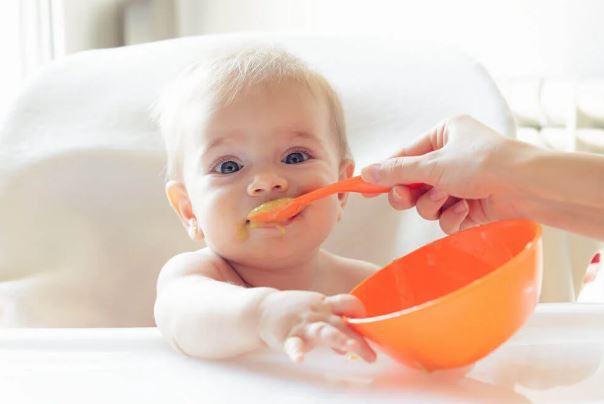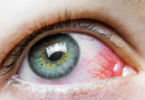Do you know why it is important that you take your child to the childcare appointment frequently? We explain why and we give you some recommendations.

Childcare can be seen as a complement to pediatrics, although it is not pediatrics itself. Since the industrial revolution, it appeared in the world as an attempt to reduce the death of infants before the first birthday. However, it was not until 1865 that the concept was introduced to medicine.
Today, the guidance of a childcare provider is vital for mothers, as they act as guides to healthy parenting practices that contribute to disease prevention.
In fact, it differs from pediatrics because pediatricians are the ones who treat diseases and the childcare provider is the one who prevents them from occurring. Here we tell you everything you need to know about this medical science.
What is childcare?

Childcare is a branch of medical science that guides parents toward healthy practices for raising children.
The term “childcare” comes from the Latin pueros, puer, pueris which means “children” and culture which means cultivation or care. Thus, childcare is the branch of medical science that is dedicated to applying and studying those practices that protect health and promote growth and development according to the genetic capabilities and potential of children.
So the objectives pursued by childcare are to promote optimal and healthy development of the population between 0 and 19 years of age. Also identify, diagnose and manage health problems and prevent or reduce future diseases. This is pursued through the guidance of parents and children regarding the care they should have.
Types of childcare
There are two types of childcare important for the development of the child and the healthy development of it in the world. We explain in more detail what they are.
Prenatal childcare
As the name implies, they are the consultations that must be taken between 26 and 38 weeks of pregnancy to prepare the future mother for the correct care of the child.
In these consultations, the importance of exclusive breastfeeding up to 6 months and complementary breastfeeding up to two years, vaccination, the position in which the baby should sleep and transitional diarrhea of the newborn are oriented.
Postnatal childcare
This is classified by age. Newborn childcare ranges from 0 to 28 days; infant childcare ranges from one month to eleven months and transitional, from one year to 2 years of age.
Preschool children range from 2 to 4 years of age and school children range from 5 to 9. From age 10 to 19, we talk about adolescent childcare.
It will then be the puericultores who take care of the healthy child with monthly consultations. Also in risky cases, where care is more important due to the higher risk of mortality.
Risk cases refer to low birth weight, premature children, multiple pregnancies, severe congenital disease and children of adolescent mothers, among others.
Importance of childcare
By having clear the objectives of childcare as the methods to ensure a healthy and healthy development in the child population, from the physiological, psychological and social perspective, the importance is reflected.
Care during the first years of life is essential for the child to adopt healthy attitudes and habits that guarantee good health for the rest of his life.
It is during the childhood period where the foundations for health in adult life are established, so early care can avoid sequelae or permanent alterations.
Basic childcare tips

The childcare provider provides guidance from birth to 19 years in different areas of development.
Currently, childcare provides the necessary advice to give children a healthy lifestyle, among which the following recommendations stand out.
General cleaning
It is recommended to clean it at least once a day. Do it with cotton balls soaked in warm water, cleaning the outside of the ears without using cotton swabs and the eyes without obstructing the tear duct. The nose, with physiological solutions to soften the secretions and make them easier to remove.
In the case of the umbilical cord, cleaning must be with 70% alcohol and the procedure must begin at the base of the cord. You have to put the newborn’s diaper with the cord outside to avoid contamination. Regarding the diaper, it must be changed at least 6 times a day to avoid irritating the skin.
Baby bath
You should bathe daily at a temperature between 35 and 37 degrees Celsius, without perfumed soap for the first months of life. It can include the use of shampoo or soap on a regular basis after 6 months.
Oral hygiene
Oral hygiene begins from birth. The newborn’s mouth should be cleaned after nursing with emphasis on the tongue, gums, and cheeks. Ideally, do this with a clean gauze or cloth.
After the first tooth comes out, a small soft-bristle toothbrush should be used and washed with it at least twice a day or after each meal and before sleeping. Toothpaste should be used once the child understands that he should not swallow it. That usually happens after three years.
Recommended clothing
The clothing should be preferably cotton, without tags or metal clasps and without ornaments such as necklaces or bracelets. Washing should also be done with a hypoallergenic detergent and bar soap to avoid irritation. An extra layer of clothing is recommended for up to six months.
Childcare: A Guide for Parents
Childcare providers are specialists in the healthy development of children from birth to 19 years of age. Therefore, they become a guide for parents by offering tips to prevent disease and create healthy habits.
Throughout the article, some of the basic recommendations have been cited to keep a child in good health and prevent him from contracting diseases, although his pediatrician and childcare provider is the one who should guide him better on the subject.





